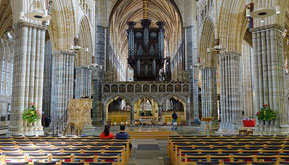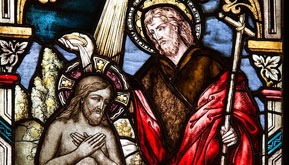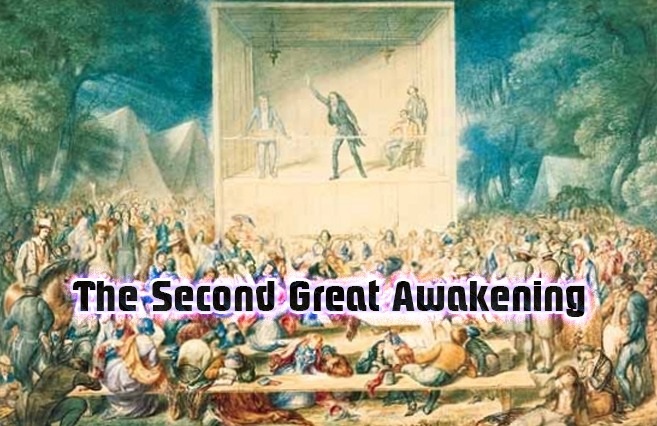The Second Great Awakening occurred well after America had freed itself from the constraints of British rule. From the 1790s to the 1830s, religious fervor once again swept across the country, forever changing the landscape of Christianity in America. Best known for its large camp meetings, unprecedented numbers of people came to believe in Christ.

The camp meetings were much like George Whitfield’s and Jonathan Edward’s larger outdoor meetings from the First Great Awakening. They were charged with emotion, filled with exhortations to leave all behind for Christ, and threats and warnings against sin. Converts were often attracted to the enthusiastic and theatrical style of preaching common among the preachers at the meetings. Audience participation in the sermons was also a particularly large draw. A quote from a participant in one of the biggest meetings in Cane Ridge, Kentucky, in 1802 captures the essence of the gatherings entirely.

This sentiment was shared by thousands of others, overwhelmed by the weight of the message of redemption and of the revelation of their own sin within them. The young man whom this quote came from was so affected by what he experienced at the meeting that he went on to become a Methodist preacher. The Second Great Awakening is one of the most profound examples of ministers to emotionally connect to people on a deep level and spur them to spiritual life and revival.

All of this would not have been possible had it not been for the immense amount of organizational precision of the churches. The preachers and missionaries all developed techniques to spread the faith that would conform to the frontier style of living that was booming across America as settlers spread further and further west. One of the more popular ways was to have an itinerant preacher responsible for a large area of land. It also included setting up important meeting areas for those who were part of the administration of the church within these frontier areas.

The Second Great Awakening brought about a more optimistic outlook on the spiritual situation of humanity. Throughout the several decades of revivals and religious reform, America slowly became a more Protestant nation. These changes served to bring about a much higher rate of African Americans and women within the church. The Second Great Awakening’s effects are still felt today, and they positively affected Christianity not only in America but all around the world as well.

